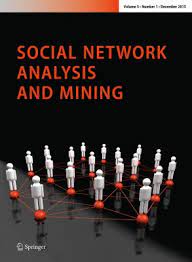
Abstract: Previous research dedicated a lot of effort to investigation of the activities of the Internet Research Agency, a Russia-based troll factory, as well as other information operations. However, those studies are mostly focused on the 2016 U.S. presidential election, Brexit, and other major international political events. In this study, we have attempted to analyze how narratives about a domestic issue in Russia are used by malicious actors to promote harmful discourses globally and persuade an international audience on Twitter. We have identified bot and troll activities related to the Twitter discussions of a Russian opposition leader Alexei Navalny using social network analysis and bot detection. We have also implemented the BEND framework to find persuasion maneuvers that are used by bots in conversations about Navalny and found attempts to manipu- late the opinion of the international audience on Twitter. Our findings have demonstrated that there is a significant presence of bot activities in information operations against Alexei Navalny as one of the leaders of the Russian opposition. We have observed how the Russian domestic issue is framed in the context of Russian confrontation with the West and how it is used to promote hostile narratives either against Navalny, an opposition movement, or democratic values. Many agents that we have identified pretend to be English speakers, who exhibit hostile attitudes towards Navalny and the Western democracies, express skepticism and distort the facts, promote a lack of trust in the democratic institutions as well as spread disinformation and conspiracy theories.
Source: Alieva, I., Moffitt, J.D. & Carley, K.M. How disinformation operations against Russian opposition leader Alexei Navalny influence the international audience on Twitter. Soc. Netw. Anal. Min. 12, 80 (2022). https://doi.org/10.1007/s13278-022-00908-6